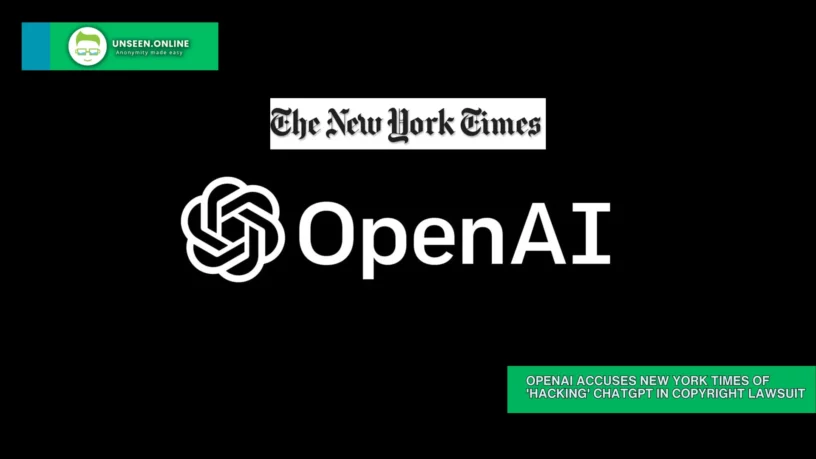OpenAI has fired back in a copyright infringement lawsuit filed by The New York Times. The AI company claims the Times “hacked” ChatGPT by exploiting a known bug to generate evidence. OpenAI argues that the newspaper deceptively prompted the AI tool to produce text that regurgitated Times content, violating OpenAI’s terms of use.
OpenAI asserts that these actions were aimed at unfairly framing typical flaws as standard chatbot behavior. The tech firm plans to address the bug but denies any intentional copyright infringement.
The New York Times refutes OpenAI’s “hacking” claims, maintaining that they simply used OpenAI’s tools to prove the alleged copying of their copyrighted work. They further argue that the scale of copying exceeds the examples provided.
OpenAI also seeks to dismiss the lawsuit, citing a three-year statute of limitations and a lack of evidence proving their intent to contribute to copyright infringement. The Times counters that this doesn’t excuse OpenAI’s behavior.
The dispute highlights the complexities of AI development and copyright law. OpenAI’s claim that the Times tracked user queries raises further concerns about user privacy.







